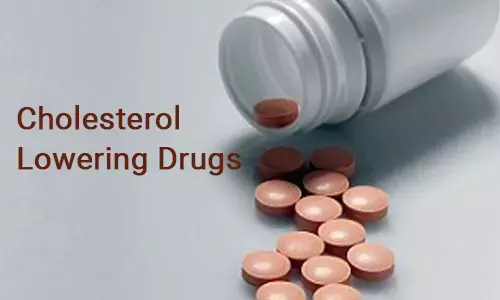- Home
- Medical news & Guidelines
- Anesthesiology
- Cardiology and CTVS
- Critical Care
- Dentistry
- Dermatology
- Diabetes and Endocrinology
- ENT
- Gastroenterology
- Medicine
- Nephrology
- Neurology
- Obstretics-Gynaecology
- Oncology
- Ophthalmology
- Orthopaedics
- Pediatrics-Neonatology
- Psychiatry
- Pulmonology
- Radiology
- Surgery
- Urology
- Laboratory Medicine
- Diet
- Nursing
- Paramedical
- Physiotherapy
- Health news
- Fact Check
- Bone Health Fact Check
- Brain Health Fact Check
- Cancer Related Fact Check
- Child Care Fact Check
- Dental and oral health fact check
- Diabetes and metabolic health fact check
- Diet and Nutrition Fact Check
- Eye and ENT Care Fact Check
- Fitness fact check
- Gut health fact check
- Heart health fact check
- Kidney health fact check
- Medical education fact check
- Men's health fact check
- Respiratory fact check
- Skin and hair care fact check
- Vaccine and Immunization fact check
- Women's health fact check
- AYUSH
- State News
- Andaman and Nicobar Islands
- Andhra Pradesh
- Arunachal Pradesh
- Assam
- Bihar
- Chandigarh
- Chattisgarh
- Dadra and Nagar Haveli
- Daman and Diu
- Delhi
- Goa
- Gujarat
- Haryana
- Himachal Pradesh
- Jammu & Kashmir
- Jharkhand
- Karnataka
- Kerala
- Ladakh
- Lakshadweep
- Madhya Pradesh
- Maharashtra
- Manipur
- Meghalaya
- Mizoram
- Nagaland
- Odisha
- Puducherry
- Punjab
- Rajasthan
- Sikkim
- Tamil Nadu
- Telangana
- Tripura
- Uttar Pradesh
- Uttrakhand
- West Bengal
- Medical Education
- Industry
PCSK9 inhibitors safer than statins in people with elevated risk of hemorrhagic stroke: Study

USA: A recent study comparing the lipid-lowering therapies statin and PCSK9 inhibitors found statin to be associated with an increased risk of hemorrhagic stroke (HS) but not PCSK9Is.
The study, published in the journal Stroke, suggests PCSK9Is be a preferred lipid-lowering medication class in patients with increased risk of hemorrhagic stroke, including patients with prior HS.
Dyslipidemia is an established risk factor for stroke and cardiovascular diseases (CVDs) and it is crucial to appropriately manage the elevated low-density lipoprotein cholesterol (LDL-C) levels, a known atherogenic risk factor, for reducing the risk of atherosclerotic vascular events and death.
In patients with a first cerebrovascular event in 2006 (SPARCL), statins were shown to increase hemorrhagic stroke likely due to off-target antithrombotic effects. Despite this, it is continued to be used sometimes in patients with elevated HIS risk due to the absence of alternative medications. Recently, the PCSK9Is (proprotein convertase subtilisin kexin 9 inhibitors) have become available as a potent lipid-lowering class with potentially less hemorrhagic propensity.
Against the above background, Borja E. Sanz-Cuesta and Jeffrey L. Saver from UCLA, Los Angeles, CA, performed a systematic comparative meta-analysis to evaluate hemorrhagic stroke rates across all completed statin and PCSK9I randomized clinical trials with treatment > 3 months, following PRISMA guidelines.
In addition to HS rates across all trials, causal relation was probed by evaluating for dose-response relationships by medication (low versus high medication dose/potency) and by presence and type of preceding brain vascular events at inception (none versus ischemic stroke/transient ischemic attack versus HS).
A total od 36 statin randomized clinical trials (204 918 patients) and 5 PCSK9I randomized clinical trials (76 140 patients) were identified.
Key findings of the study include:
- Across all patient types and all medication doses/potencies, statins were associated with increased HS: relative risk 1.15; PCSK9Is were not.
- In the medication dose/potency analysis, higher dose/potency statins (7 trials, 62 204 patients) were associated with magnified HS risk: relative risk, 1.53; higher dose/potency PCSK9Is (1 trial, 27 564 patients) were not.
- In the type of index brain vascular injury analysis for statins (5 trials, 9772 patients), prior ischemic stroke/transient ischemic attack was associated with a magnified risk of HS: relative risk, 1.43; and index intracerebral hemorrhage was associated with an extremely high effect estimate of risk of recurrent HS: hazard ratio, 4.06. For PCSK9Is, prior ischemic stroke/transient ischemic attack (1 trial, 5337 patients) was not associated with increased HS risk.
"Our findings show that statins increase the risk of HS in a medication dose- and type of index brain vascular injury-dependent manner; PCSK9Is do not increase HS risk," concluded the authors. "PCSK9Is may be a preferred lipid-lowering medication class in patients with elevated HS risk, including patients with prior HS."
Reference:
The study titled, "Lipid-Lowering Therapy and Hemorrhagic Stroke Risk: Comparative Meta-Analysis of Statins and PCSK9 Inhibitors," is published in the AHA journal Stroke.
DOI: https://www.ahajournals.org/doi/abs/10.1161/STROKEAHA.121.034576
Dr Kamal Kant Kohli-MBBS, DTCD- a chest specialist with more than 30 years of practice and a flair for writing clinical articles, Dr Kamal Kant Kohli joined Medical Dialogues as a Chief Editor of Medical News. Besides writing articles, as an editor, he proofreads and verifies all the medical content published on Medical Dialogues including those coming from journals, studies,medical conferences,guidelines etc. Email: drkohli@medicaldialogues.in. Contact no. 011-43720751


